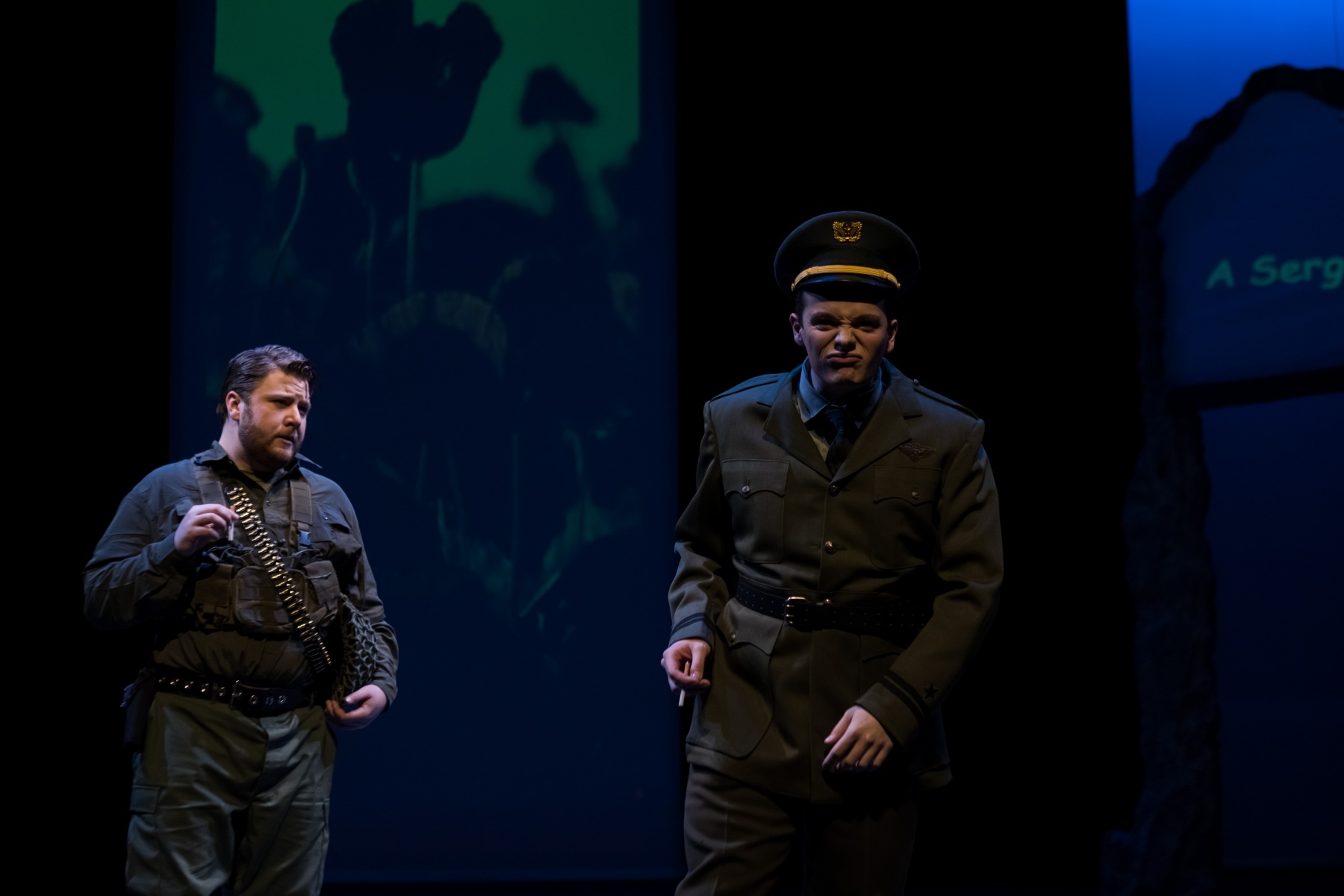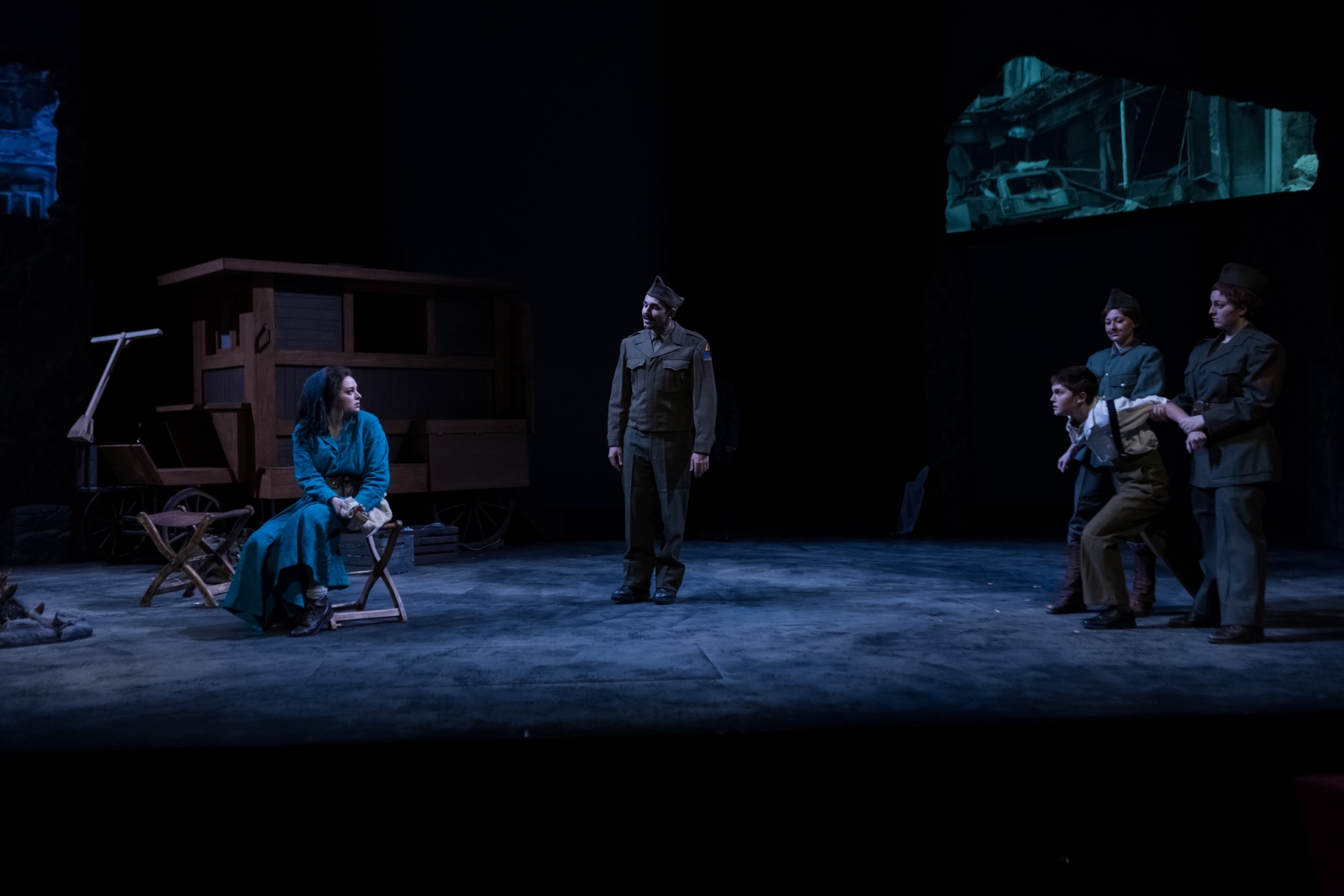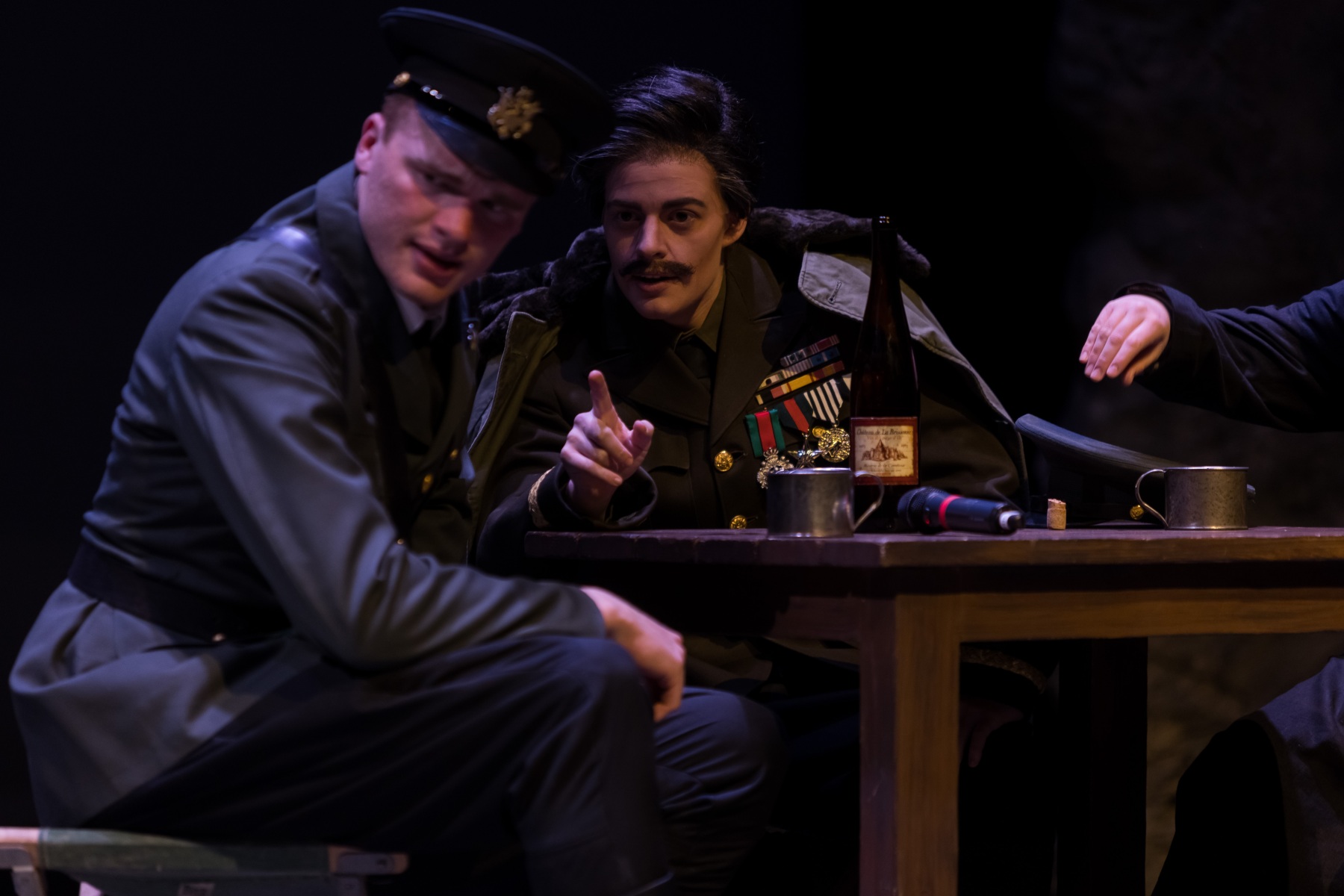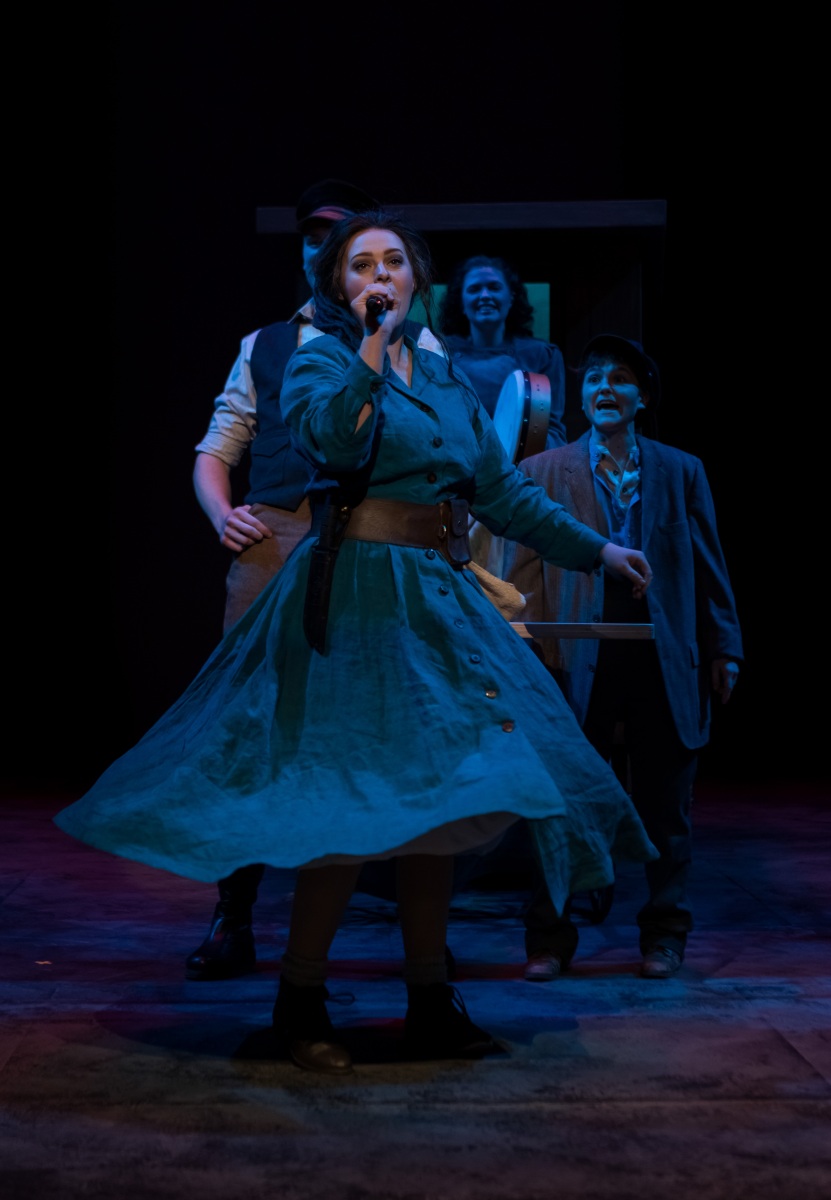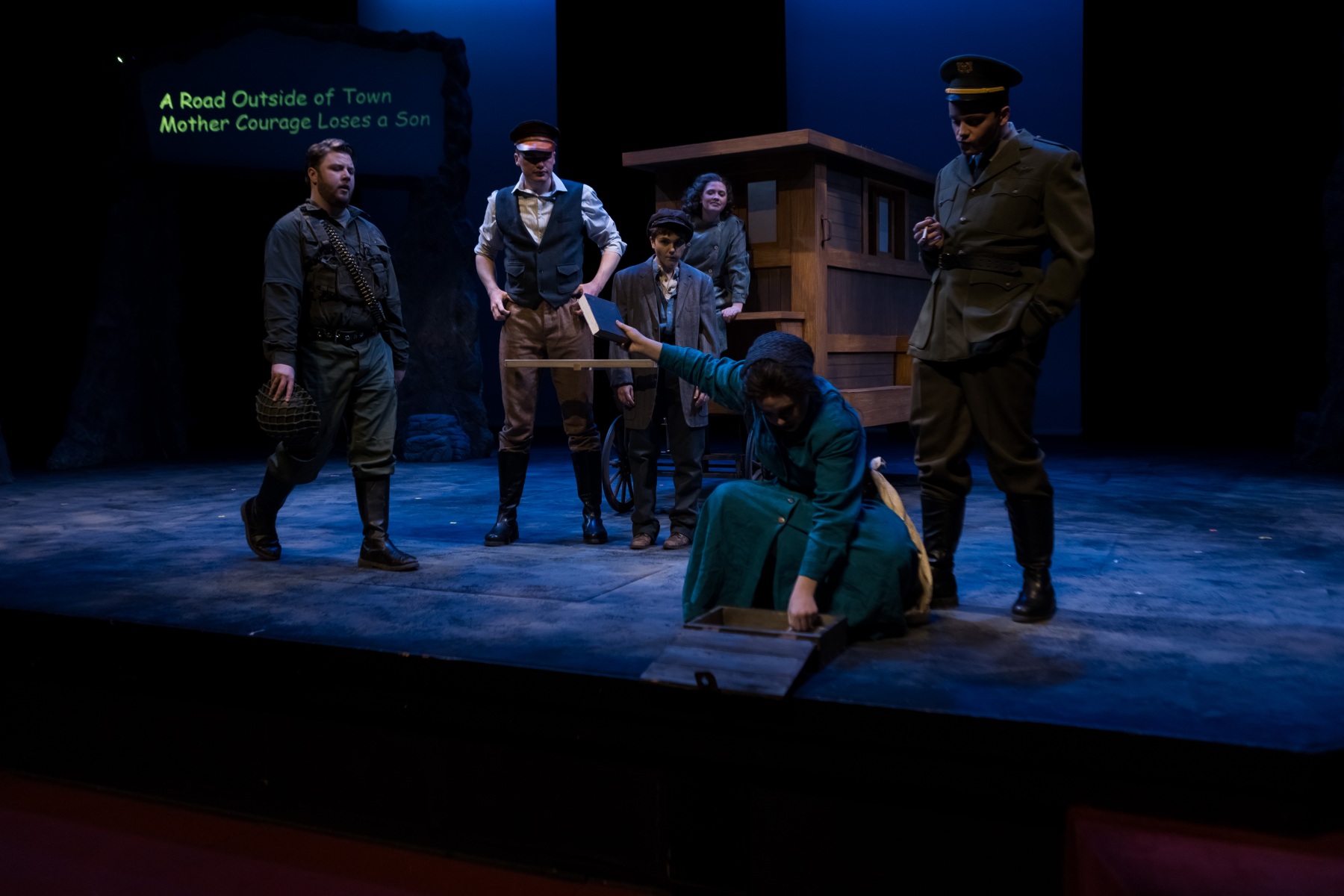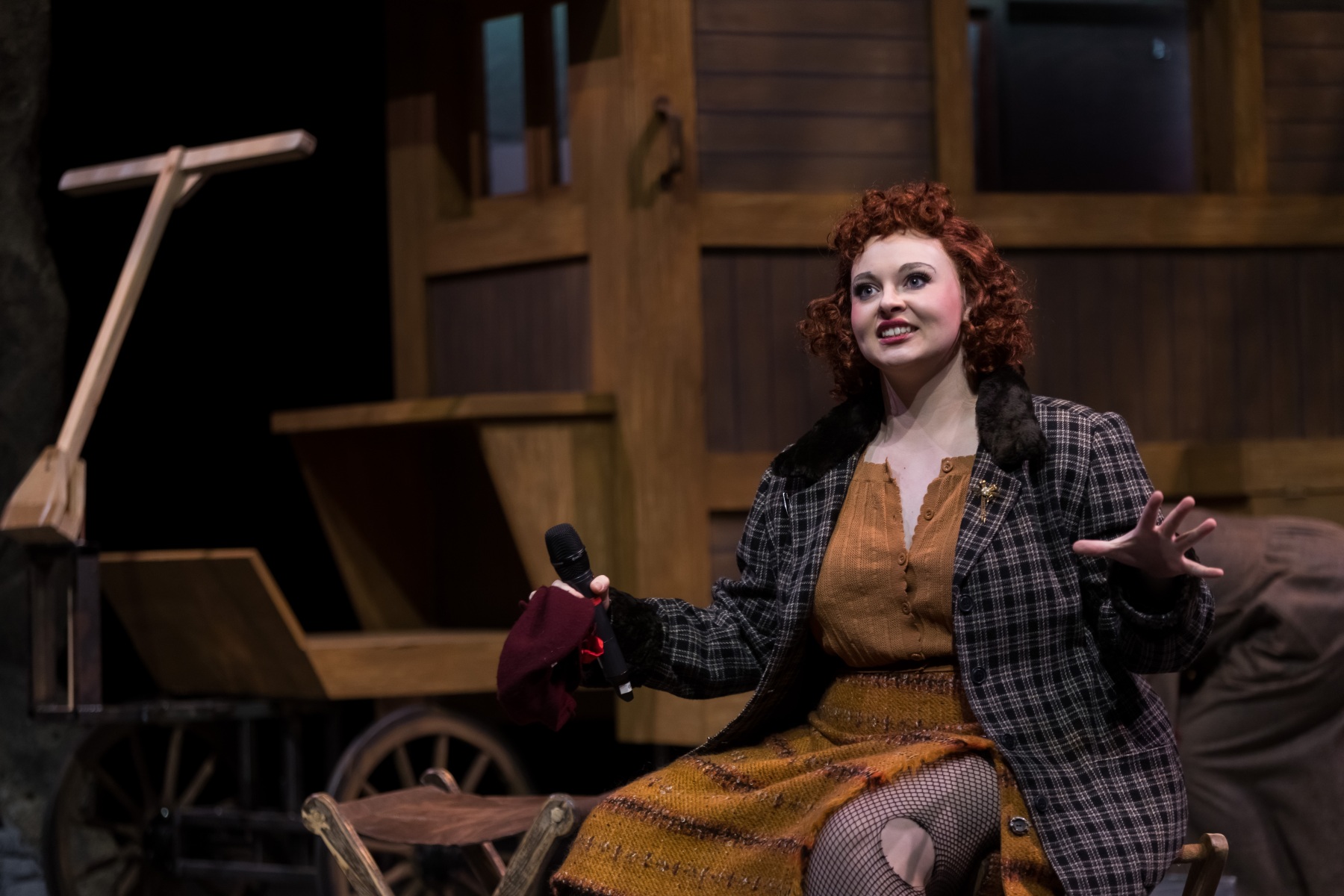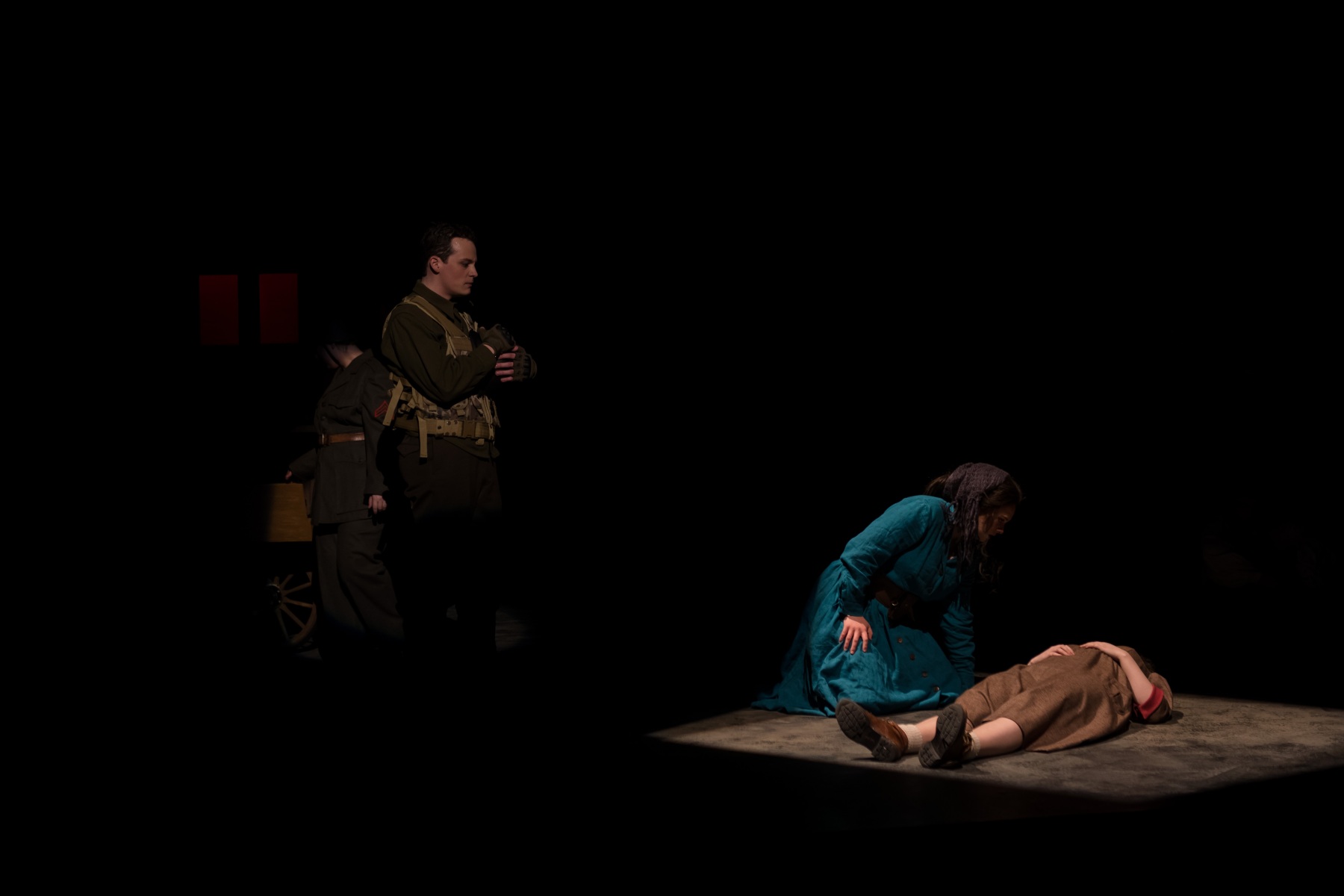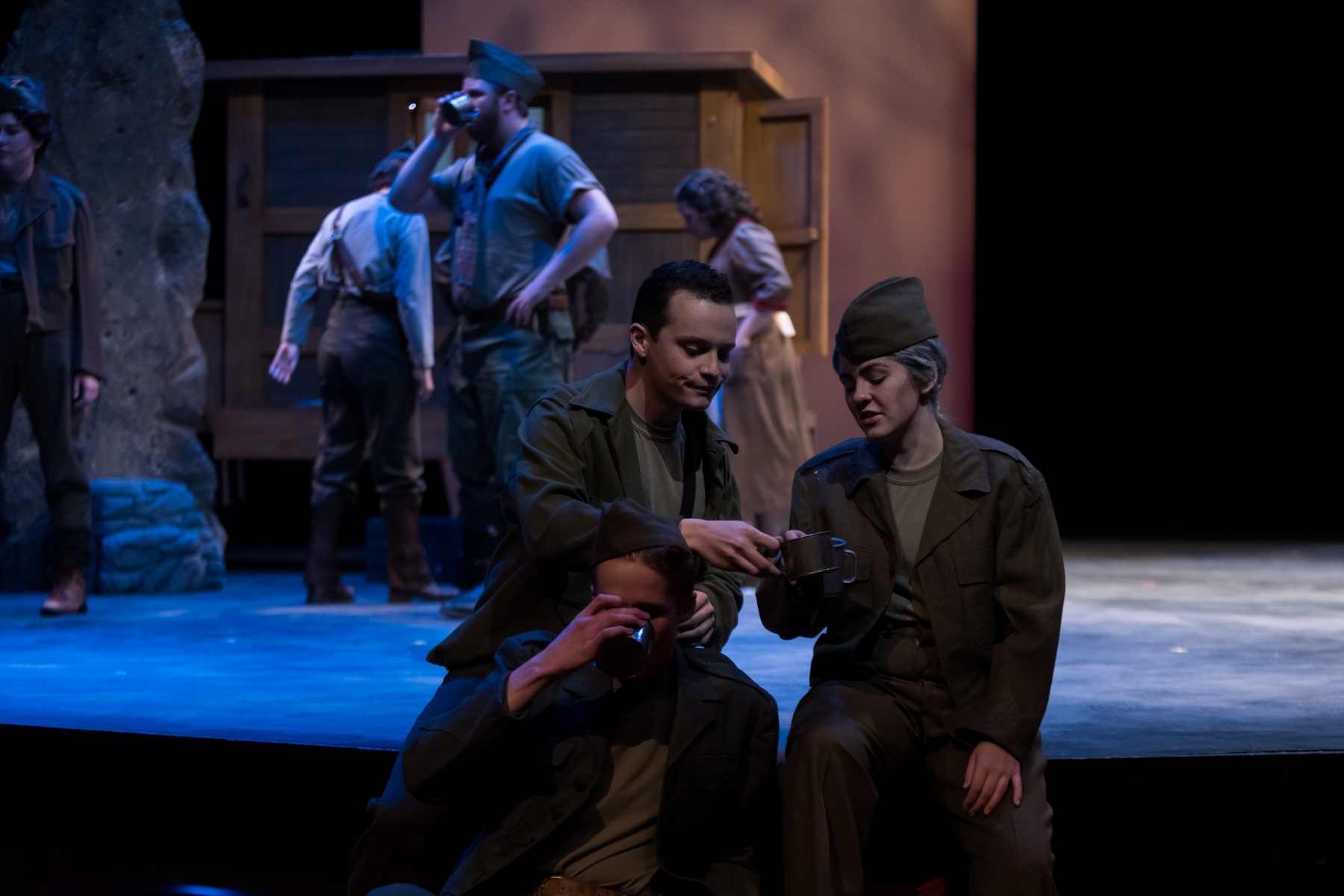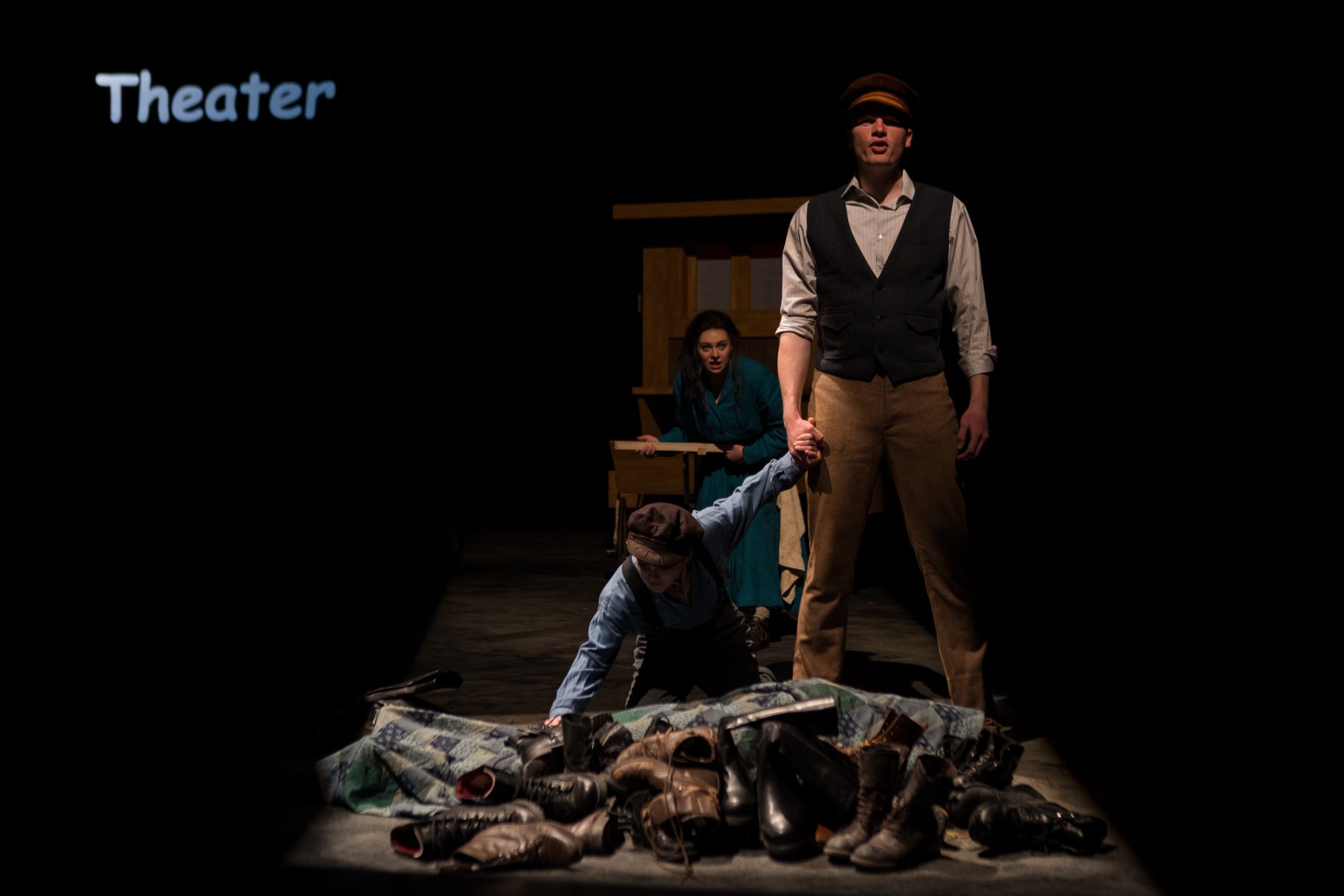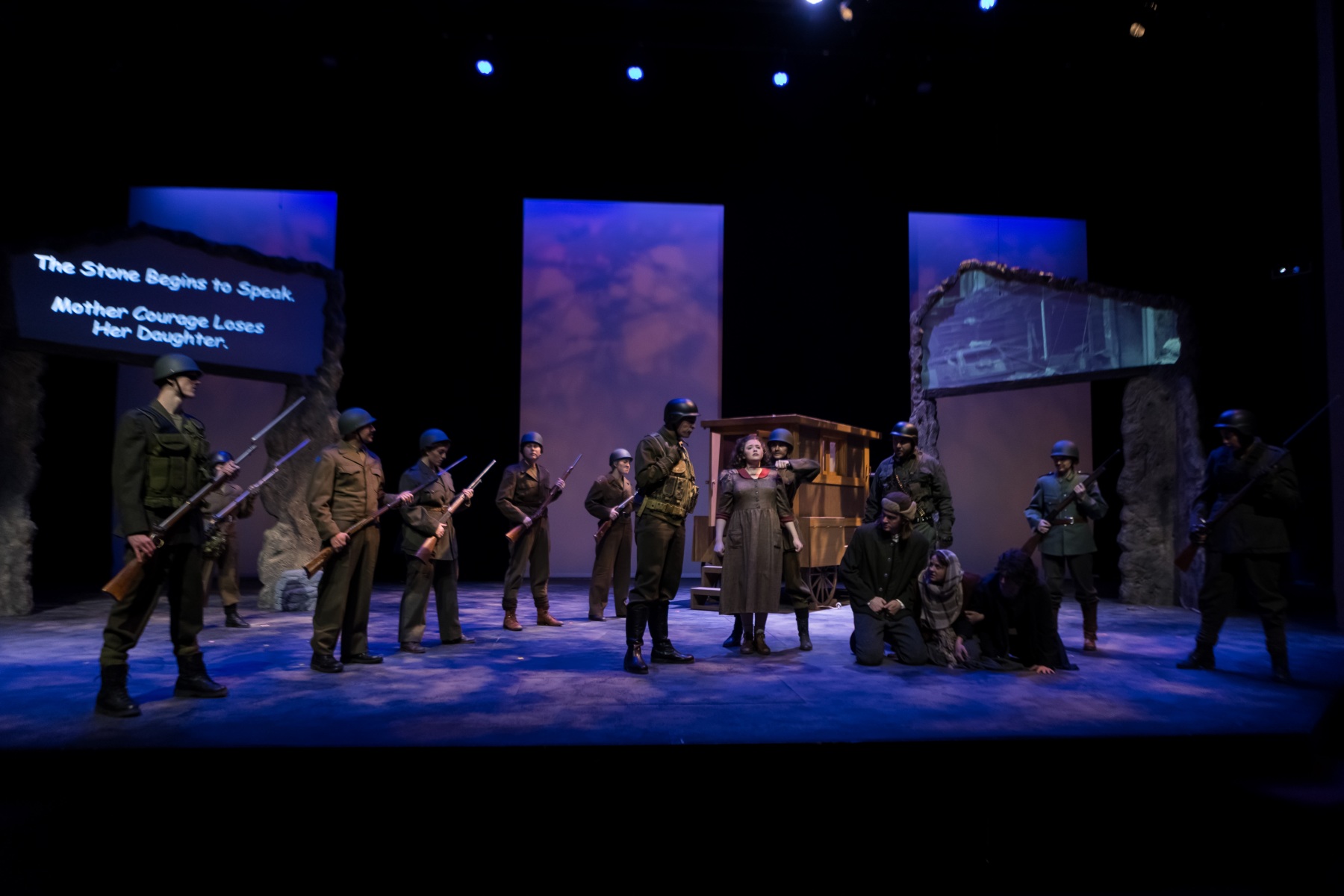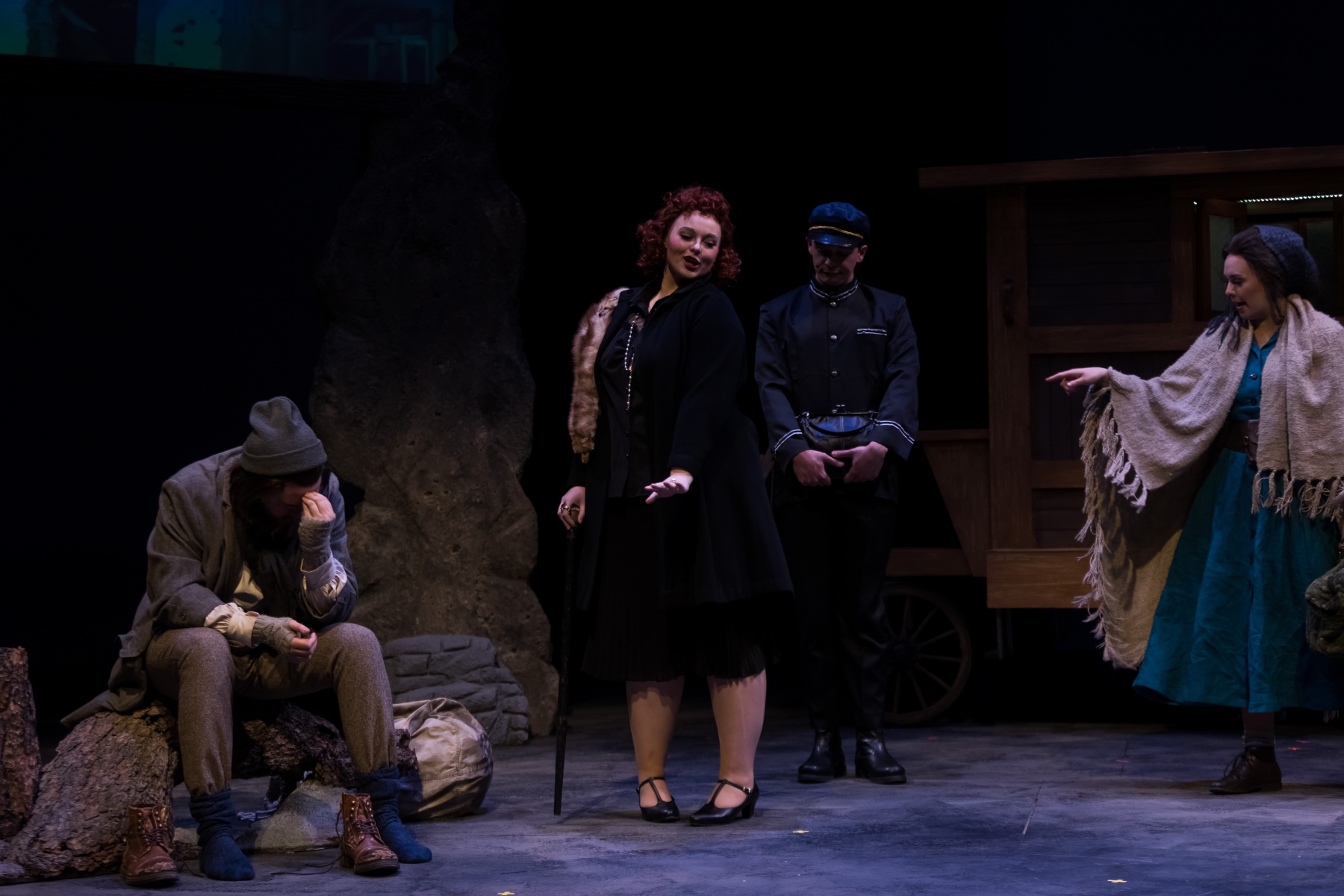| Artistic Staff | Cast |
| Director: Scott C. Knowles | Mother Courage: Whitney Black |
Assistant Director: J. Rhys Kaiser | Kattrin: Nora Asplund |
Music Director: Mitchell Brownell | The Cook: Jeremy Allen |
Scenic Design: Brian Jude Beacom | Swiss Cheese: Finley Caciola |
Assistant Scenic Designer: Riley Meyers | Eilif: Lincoln Stone |
| Costume Design: Mariya Nedyalkova | Yvette: Emma Turpin |
Lighting Design: Amelia Ludt | Ensemble: Lora Burton, Bridget Arias Cunningham, Nick Denhalter, TJ Horton, Zina Johnstun, Annie Lanier, Jarod Lewis, Jessica Marcano, Mary Jane Pike, Grace Powers, Thompson Scribner, Elise Thayn, Jove Tripp-Thompson, Lilian Van Daam |
Sound Design: Tristan Bowman | |
Dramaturg: Tessa Cheshire, Sarah Penner, and Margaret Green | |
Stage Manager: Susannah Pilkington | |
| Fight Director: Finley Caciola | |
Viewpoints Captain: TJ Horton | |
Projections Designer: Brian Jude Beacom |
Vision Statement
At some point in Brecht’s life it is clear he was opposed to an overly emotional theatre. As he states in “Conversation with Bert Brecht” published as part of John Willet’s Brecht on Theatre, “I don’t let my feelings intrude in my dramatic work. It’d give a false view of the world. I aim at an extremely classical, cold, highly intellectual style of performance. I’m not writing for the scum who want to have the cockles of their hearts warmed” (14). Many scholars like to think of Brecht as three different people: Brecht the theorist, Brecht the playwright, and Brecht the theatre maker (director/dramaturg). Brecht the theorist (or perhaps more properly Brecht’s early theories) would suggest a clear distinction between reason and emotion, one that leads to an analytical theatre, a theatre for an audience of the scientific age, where arguments and evidence can be placed on the stage, observed, tested, and dissected. A laboratory where we can learn about culture, politics, and society to hopefully apply those lessons in the real world. To accomplish this, Brecht most famously suggests the Verfremdungseffekt (which I prefer to translate as distancing effect as opposed to the more controversial Alienation effect). The V-effect is a technique by which an audience is made to have an awareness of the play in itself, the actor in the character, the real in the imagined, so as to more properly judge the presentation and then take lessons or actions into the world. It might also be considered an interruption in the process of affect or emotion, a stopping that forces an audience to consider and reconsider their experiences in the moment leading to complex thought and learning¾to set the audience at a distance from the emotional side of events. In Brecht’s later life he was more receptive to the deployment of affect inducing material and tools. In this production I want to deploy Brechtian theory to test the limits of inducing an emotional experience only to shut it down and demand a new perspective or viewpoint. What are the limits of such an approach? What is the importance of the emotional experience that precedes the V-effect or other tools and techniques? Where is the balance?
Mother Courage is a vehicle for this exploration and who could deny the potential emotional impact of Mother Courage, a woman who loses her children one by one to a war that also provides her livelihood? The play seemingly centers on war, but actually focuses on the periphery. We see what war does to Mother Courage and her family, the choices that are made to survive, the people left behind to protect a child, the money and goods begrudgingly abandoned too late to save Swiss Cheese. Anna Fierling balances safety with the need for capital. She cannot survive without her wagon, her business, and piece by piece it rips her family apart. The play forces a consideration of the cost of war, not in a global broad sense, but in the meticulous details of the lives we see on stage. Throughout the play we must look to the side, askance, not at the war itself but the very real, personal, human cost. This examination of the adjacent should force a reconsideration of our own wars in the US. What is the cost of military drones? How many civilian deaths are acceptable? Where and why do US companies profit from our various wars and why do we truly fight them? Religion? Oil? National security? Looking askance at these major thematic ideas with a balance of Brechtian theories and techniques while still producing an affective and emotional experience is the production’s goal. Through this focus I hope to not only tell a powerful story that asks our audience to question the nature of war and the surrounding consequences, but also to better understand the potential of emotion within the theatre. How can we manipulate it, generate it, and use it to serve the dual goals of a theatrical experience: to teach and to please?
A short scene from this production can be viewed here: Directing Video
Contact me for password.
